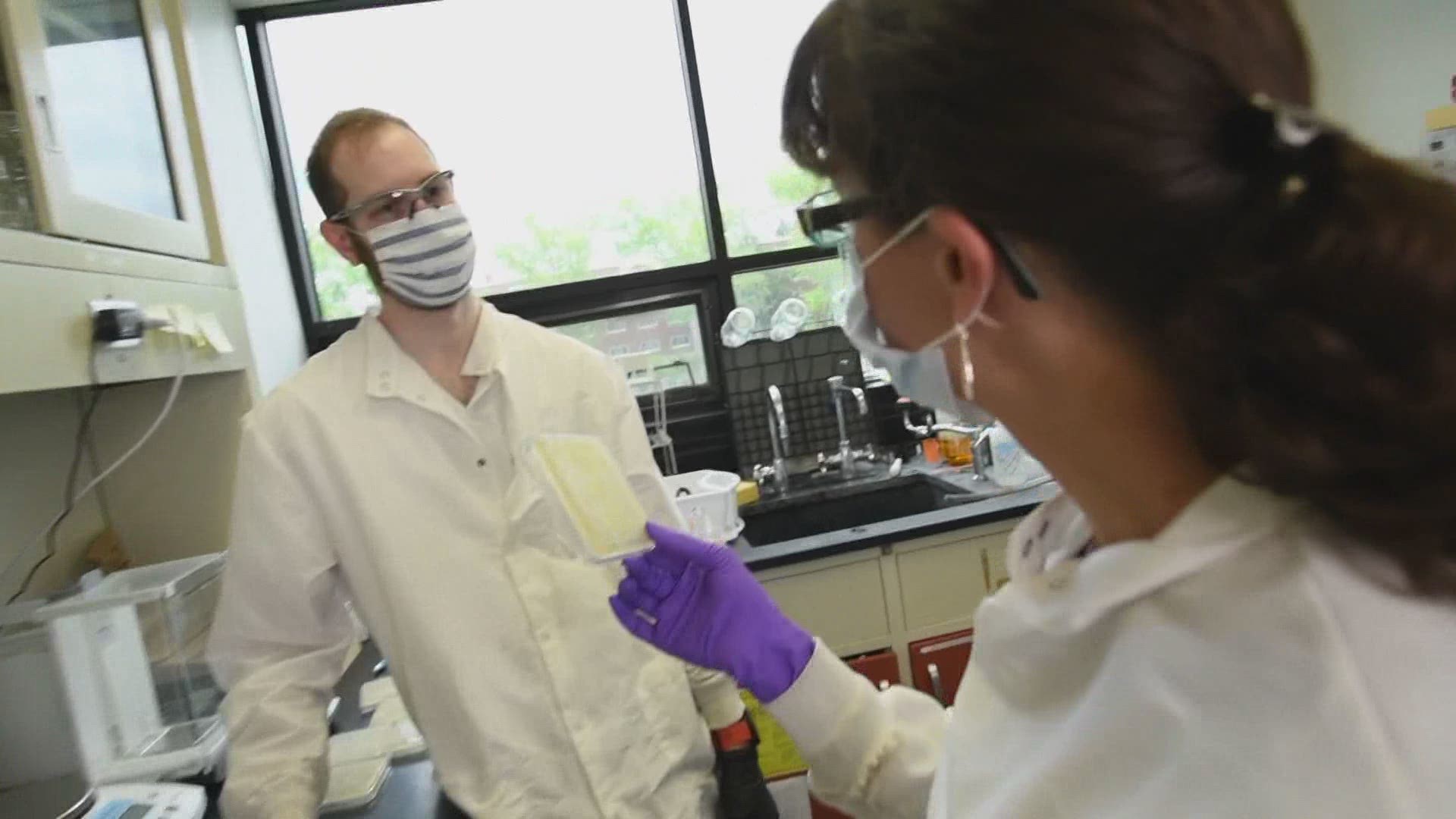ORONO, Maine — It continues to be a burning question for medical experts: can airborne droplets pass the coronavirus from person to person?
The problem—it's very difficult to capture a large amount of the live pathogens through the air.
But researchers at the University of Maine developed a new filtration technology inspired by a plant.
The University of Maine (UMaine) and the University of Massachusetts (UMass) Amherst is teaming up to analyze COVID-19 droplets in hopes of developing a membrane that will stop the flow of the droplets.
According to the scientists, their goal is to develop a membrane that can be used as an insert in any air filtration system to capture virus-containing droplets making it easier to collect and analyze.
The end product would be inexpensive so it can be used in high -risk locations such as hospitals, schools, elder-care facilities, and travel hubs.
The researchers say their inspiration comes from the pitcher plant. The pitcher plant uses a liquid to capture insects to digest—that's the concept behind a liquid membrane insert that can be used in an air filtration system which allows collected bacteria to be tested.
The Centers for Disease Control (CDC) report COVID-19 is thought to spread mainly from person to person, mainly through respiratory droplets produced when an infected person coughs, sneezes, or talks. These droplets can land in the mouths or noses of people who are nearby or possibly be inhaled into the lungs.
Before the pandemic hit, researchers at the two universities developed a coated membrane insert. The technology was 32 percent more effective in capturing live bacteria than large filtration systems.
That breakthrough research helped researchers secure a $225,000 grant from the National Science Foundation (NSF) that will be used to see if the membrane can also collect active pathogens that cause the coronavirus. The research will be led by UMaine biomedical engineer Caitlin Howell and UMass Amherst chemical engineer Jessica Schiffman. UMaine virologist Melissa Maginnis will also contribute.
In their NSF proposal, the researchers said, “Disease-causing agents such as the novel coronavirus (SARS-CoV-2) that take form as bioaerosols present unique challenges for disease surveillance, containment, and treatment. This work will fill a critical gap in current methods of monitoring the spread of disease.”
According to UMaine, previous attempts to design aerosol collection systems for viruses have had limited success because of the difficulty of retrieving intact virus particles from a solid filter surface or inadequate or low air filtration rates.
If the project is successful, the inserts could be used in commercial air filtration systems and help protect the public from not only COVID-19 but other viruses as well, including the flu.
"Maybe in a school where we want to be extra careful with our teachers and our students this could be something that could be put there and be frequently tested," Howell said.
Researchers will start testing the deactivated virus next month. In February, they will start testing live strains of COVID-19 in specially designed labs at the University of Maine Cooperative Extension.
The hope is one day these membrane inserts could be used in doctor's offices, nursing homes, or indoor spaces where it may be hard to socially distance.
--
At NEWS CENTER Maine, we’re focusing our news coverage on the facts and not the fear around the illness. To see our full coverage, visit our coronavirus section, here: /coronavirus
NEWS CENTER Maine Coronavirus Coverage
RELATED: Portland hears complaints about trash, needles and crowds of people camped out in Deering Oaks

